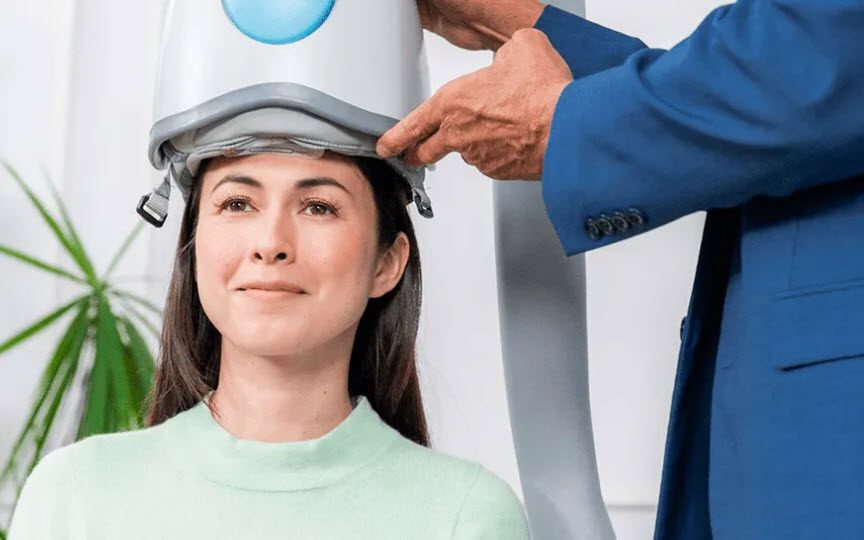TMS vs. Traditional Treatments: When to Consider Transcranial Magnetic Stimulation
By Camelback Integrated Health and Wellness | October 13, 2025
Key Takeaways
- TMS (transcranial magnetic stimulation) offers a non-invasive alternative for treatment-resistant depression and anxiety.
- It may be ideal for people who don’t respond to medications or experience intolerable side effects.
- Camelback Integrated Health & Wellness provides personalized TMS therapy in Phoenix with evidence-based protocols.
TMS vs. Traditional Treatments – What Are Standard Depression Treatments?
Traditional depression treatments often begin with antidepressant medications (SSRIs, SNRIs, tricyclics) and psychotherapy, such as cognitive-behavioral therapy (CBT).
While effective for many, others experience limited relief or unwanted side effects like weight gain, fatigue, or emotional blunting.
Electroconvulsive therapy (ECT) is another option for severe depression, but it requires anesthesia and may affect memory (source).
How Transcranial Magnetic Stimulation (TMS) Works
TMS therapy uses magnetic pulses to stimulate specific regions of the brain associated with mood regulation. Unlike medication, it targets neural activity directly and avoids systemic side effects. According to recent research, TMS achieves response rates of 50–60% and remission in 30–35% of patients with treatment-resistant depression (source).
Because it’s non-invasive and doesn’t require sedation, patients can resume normal activities immediately after each session (source).
Comparing TMS to Traditional Treatments
| Factor | Medications & Therapy | Transcranial Magnetic Stimulation (TMS) |
| Mechanism | Chemical or behavioral changes | Magnetic brain stimulation |
| Side Effects | Fatigue, weight gain, sexual dysfunction | Mild headache or scalp discomfort |
| Effectiveness | Varies by individual | Proven for treatment-resistant depression |
| Invasiveness | Non-invasive | Non-invasive |
| Commitment | Daily pill or weekly therapy | 5 sessions/week for 4–6 weeks |
| Best For | Mild to moderate depression | Moderate to severe, treatment-resistant cases |
When to Consider TMS vs. Traditional Treatments Like Medication or Therapy
You may be a candidate for TMS therapy if you:
- Have not responded to multiple antidepressant trials
- Experience side effects from medication
- Prefer a non-drug approach
- Want to avoid ECT or anesthesia
- Seek an evidence-based alternative in a supportive setting
At Camelback Integrated Health & Wellness, we evaluate your full clinical history to determine whether TMS fits your needs.
The Camelback Approach to TMS in Phoenix, AZ
Our treatment model combines medical expertise, technology, and compassion:
- Comprehensive psychiatric and medical assessment
- Custom TMS protocol selection (standard or accelerated)
- Regular progress monitoring and session adjustments
- Post-treatment evaluation and maintenance planning
We also assist with insurance verification and financing options to make TMS accessible.
Potential Risks and Considerations
While TMS is safe for most patients, it’s important to discuss:
- Metal implants near the head (e.g., cochlear implants)
- History of epilepsy or seizures
- Pregnancy
- Concurrent medications
Mild side effects include scalp discomfort or headaches, typically resolving after a few sessions.
Key Benefits of TMS at Camelback Integrated Health and Wellness
- FDA-cleared treatment for depression
- Safe, non-invasive, and medication-free
- Administered by licensed professionals in Phoenix
- Personalized to your health history and goals
- No downtime after sessions
FAQs
Q: Is TMS more effective than antidepressants?
A: TMS is especially effective for individuals who haven’t improved with antidepressants. Many patients see results after other treatments have failed.
Q: How long does a TMS session take?
A: Each session lasts 20–40 minutes, typically five days a week for 4–6 weeks.
Q: What are the side effects of TMS?
A: Mild headache or scalp discomfort are the most common. Severe side effects like seizures are very rare.
Q: Does insurance cover TMS?
A: Most major insurance plans cover TMS for treatment-resistant depression. Coverage depends on your plan and prior authorization.
Q: Where can I get TMS in Phoenix?
A: At Camelback Integrated Health & Wellness, we provide personalized transcranial magnetic stimulation therapy in Phoenix, AZ.
If you’ve struggled to find relief from depression despite trying medications or therapy, transcranial magnetic stimulation may offer the breakthrough you need.
At Camelback Integrated Health & Wellness, our mission is to help you regain balance, clarity, and quality of life naturally and safely.
Posted in Uncategorized
Contact Us to Get Help Now
Fill Out the Form Below


